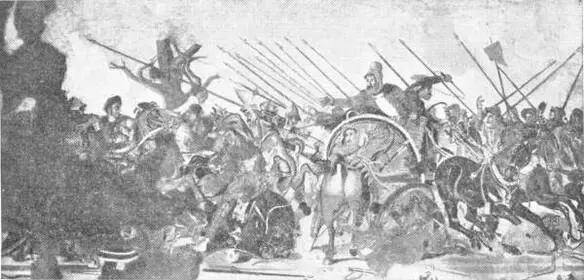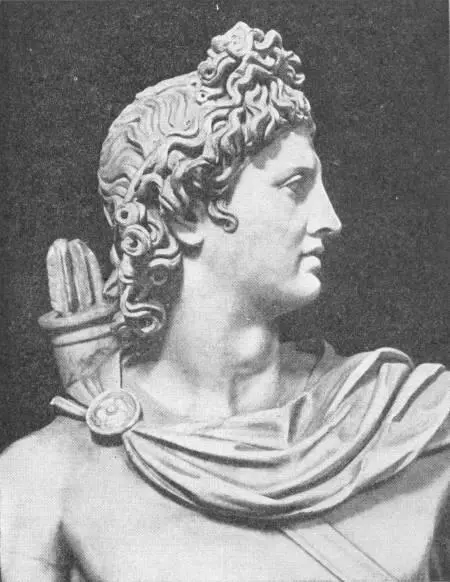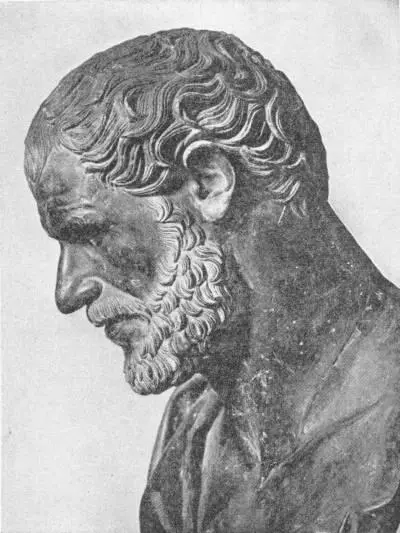Herbert Wells - A Short History of the World
Здесь есть возможность читать онлайн «Herbert Wells - A Short History of the World» весь текст электронной книги совершенно бесплатно (целиком полную версию без сокращений). В некоторых случаях можно слушать аудио, скачать через торрент в формате fb2 и присутствует краткое содержание. Год выпуска: 2011, Жанр: История, на английском языке. Описание произведения, (предисловие) а так же отзывы посетителей доступны на портале библиотеки ЛибКат.
- Название:A Short History of the World
- Автор:
- Жанр:
- Год:2011
- ISBN:нет данных
- Рейтинг книги:4 / 5. Голосов: 1
-
Избранное:Добавить в избранное
- Отзывы:
-
Ваша оценка:
- 80
- 1
- 2
- 3
- 4
- 5
A Short History of the World: краткое содержание, описание и аннотация
Предлагаем к чтению аннотацию, описание, краткое содержание или предисловие (зависит от того, что написал сам автор книги «A Short History of the World»). Если вы не нашли необходимую информацию о книге — напишите в комментариях, мы постараемся отыскать её.
A Short History of the World — читать онлайн бесплатно полную книгу (весь текст) целиком
Ниже представлен текст книги, разбитый по страницам. Система сохранения места последней прочитанной страницы, позволяет с удобством читать онлайн бесплатно книгу «A Short History of the World», без необходимости каждый раз заново искать на чём Вы остановились. Поставьте закладку, и сможете в любой момент перейти на страницу, на которой закончили чтение.
Интервал:
Закладка:

ALEXANDER’S VICTORY OVER THE PERSIANS AT ISSUS
(From the Pompeian Mosaic)
Alexander charges in on the left, Darius is in the chariot to the right
At Alexandretta and at Alexandria in Egypt he built great cities, accessible from the land and so incapable of revolt. To these the trade of the Phœnician cities was diverted. The Phœnicians of the western Mediterranean suddenly disappear from history—and as immediately the Jews of Alexandria and the other new trading cities created by Alexander appear.
In 331 B.C. Alexander marched out of Egypt upon Babylon as Thothmes and Rameses and Necho had done before him. But he marched by way of Tyre. At Arbela near the ruins of Nineveh, which was already a forgotten city, he met Darius and fought the decisive battle of the war. The Persian chariot charge failed, a Macedonian cavalry charge broke up the great composite host and the phalanx completed the victory. Darius led the retreat. He made no further attempt to resist the invader but fled northward into the country of the Medes. Alexander marched on to Babylon, still prosperous and important, and then to Susa and Persepolis. There after a drunken festival he burnt down the palace of Darius, the king of kings.

THE APOLLO BELVEDERE
(In the Vatican Museum)
Thence Alexander presently made a military parade of central Asia, going to the utmost bounds of the Persian empire. At first he turned northward. Darius was pursued; and he was overtaken at dawn dying in his chariot, having been murdered by his own people. He was still living when the foremost Greeks reached him. Alexander came up to find him dead. Alexander skirted the Caspian Sea, he went up into the mountains of western Turkestan, he came down by Herat (which he founded) and Cabul and the Khyber Pass into India. He fought a great battle on the Indus with an Indian king, Porus, and here the Macedonian troops met elephants for the first time and defeated them. Finally he built himself ships, sailed down to the mouth of the Indus, and marched back by the coast of Beluchistan, reaching Susa again in 324 B.C. after an absence of six years. He then prepared to consolidate and organize this vast empire he had won. He sought to win over his new subjects. He assumed the robes and tiara of a Persian monarch, and this roused the jealousy of his Macedonian commanders. He had much trouble with them. He arranged a number of marriages between these Macedonian officers and Persian and Babylonian women: the “Marriage of the East and West.” He never lived to effect the consolidation he had planned. A fever seized him after a drinking bout in Babylon and he died in 323 B.C.
Immediately this vast dominion fell to pieces. One of his generals, Seleucus, retained most of the old Persian empire from the Indus to Ephesus; another, Ptolemy, seized Egypt, and Antigonus secured Macedonia. The rest of the empire remained unstable, passing under the control of a succession of local adventurers. Barbarian raids began from the north and grew in scope and intensity. Until at last, as we shall tell, a new power, the power of the Roman republic, came out of the west to subjugate one fragment after another and weld them together into a new and more enduring empire.
XXVII
THE MUSEUM AND LIBRARY AT ALEXANDRIA
BEFORE the time of Alexander Greeks had already been spreading as merchants, artists, officials, mercenary soldiers, over most of the Persian dominions. In the dynastic disputes that followed the death of Xerxes, a band of ten thousand Greek mercenaries played a part under the leadership of Xenophon. Their return to Asiatic Greece from Babylon is described in his Retreat of the Ten Thousand , one of the first war stories that was ever written by a general in command. But the conquests of Alexander and the division of his brief empire among his subordinate generals, greatly stimulated this permeation of the ancient world by the Greeks and their language and fashions and culture. Traces of this Greek dissemination are to be found far away in central Asia and in north-west India. Their influence upon the development of Indian art was profound.
For many centuries Athens retained her prestige as a centre of art and culture; her schools went on indeed to 529 A.D., that is to say for nearly a thousand years; but the leadership in the intellectual activity of the world passed presently across the Mediterranean to Alexandria, the new trading city that Alexander had founded. Here the Macedonian general Ptolemy had become Pharaoh, with a court that spoke Greek. He had become an intimate of Alexander before he became king, and he was deeply saturated with the ideas of Aristotle. He set himself, with great energy and capacity, to organize knowledge and investigation. He also wrote a history of Alexander’s campaigns which, unhappily, is lost to the world.
Alexander had already devoted considerable sums to finance the enquiries of Aristotle, but Ptolemy I was the first person to make a permanent endowment of science. He set up a foundation in Alexandria which was formerly dedicated to the Muses, the Museum of Alexandria. For two or three generations the scientific work done at Alexandria was extraordinarily good. Euclid, Eratosthenes who measured the size of the earth and came within fifty miles of its true diameter, Apollonius who wrote on conic sections, Hipparchus who made the first star map and catalogue, and Hero who devised the first steam engine are among the greater stars of an extraordinary constellation of scientific pioneers. Archimedes came from Syracuse to Alexandria to study, and was a frequent correspondent of the Museum. Herophilus was one of the greatest of Greek anatomists, and is said to have practised vivisection.
For a generation or so during the reigns of Ptolemy I and Ptolemy II there was such a blaze of knowledge and discovery at Alexandria as the world was not to see again until the sixteenth century A.D. But it did not continue. There may have been several causes of this decline. Chief among them, the late Professor Mahaffy suggested, was the fact that the Museum was a “royal” college and all its professors and fellows were appointed and paid by Pharaoh. This was all very well when Pharaoh was Ptolemy I, the pupil and friend of Aristotle. But as the dynasty of the Ptolemies went on they became Egyptianized, they fell under the sway of Egyptian priests and Egyptian religious developments, they ceased to follow the work that was done, and their control stifled the spirit of enquiry altogether. The Museum produced little good work after its first century of activity.
Ptolemy I not only sought in the most modern spirit to organize the finding of fresh knowledge. He tried also to set up an encyclopædic storehouse of wisdom in the Library of Alexandria. It was not simply a storehouse, it was also a book-copying and book-selling organization. A great army of copyists was set to work perpetually multiplying copies of books.
Here then we have the definite first opening up of the intellectual process in which we live to-day; here we have the systematic gathering and distribution of knowledge. The foundation of this Museum and Library marks one of the great epochs in the history of mankind. It is the true beginning of Modern History.

Интервал:
Закладка:
Похожие книги на «A Short History of the World»
Представляем Вашему вниманию похожие книги на «A Short History of the World» списком для выбора. Мы отобрали схожую по названию и смыслу литературу в надежде предоставить читателям больше вариантов отыскать новые, интересные, ещё непрочитанные произведения.
Обсуждение, отзывы о книге «A Short History of the World» и просто собственные мнения читателей. Оставьте ваши комментарии, напишите, что Вы думаете о произведении, его смысле или главных героях. Укажите что конкретно понравилось, а что нет, и почему Вы так считаете.








